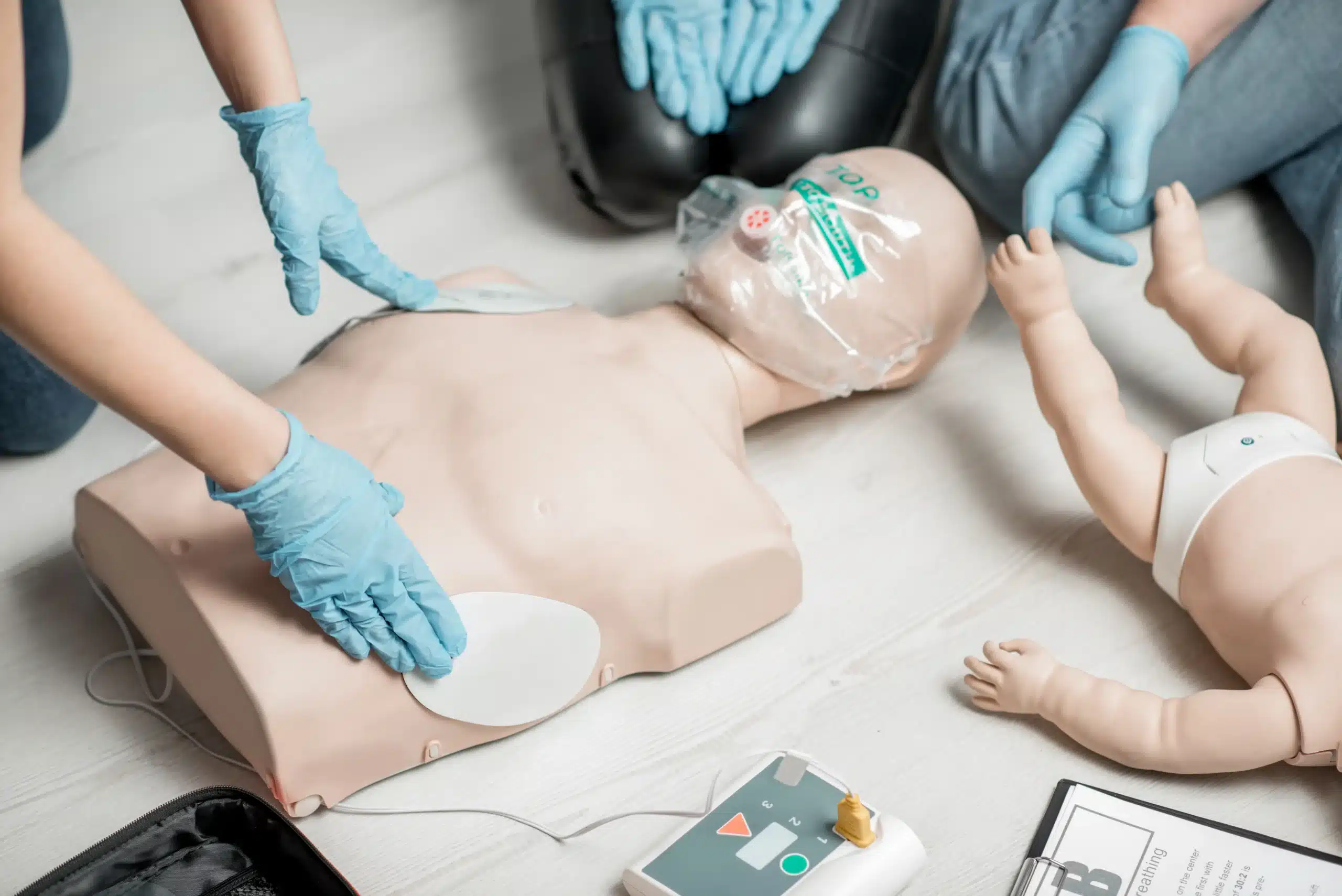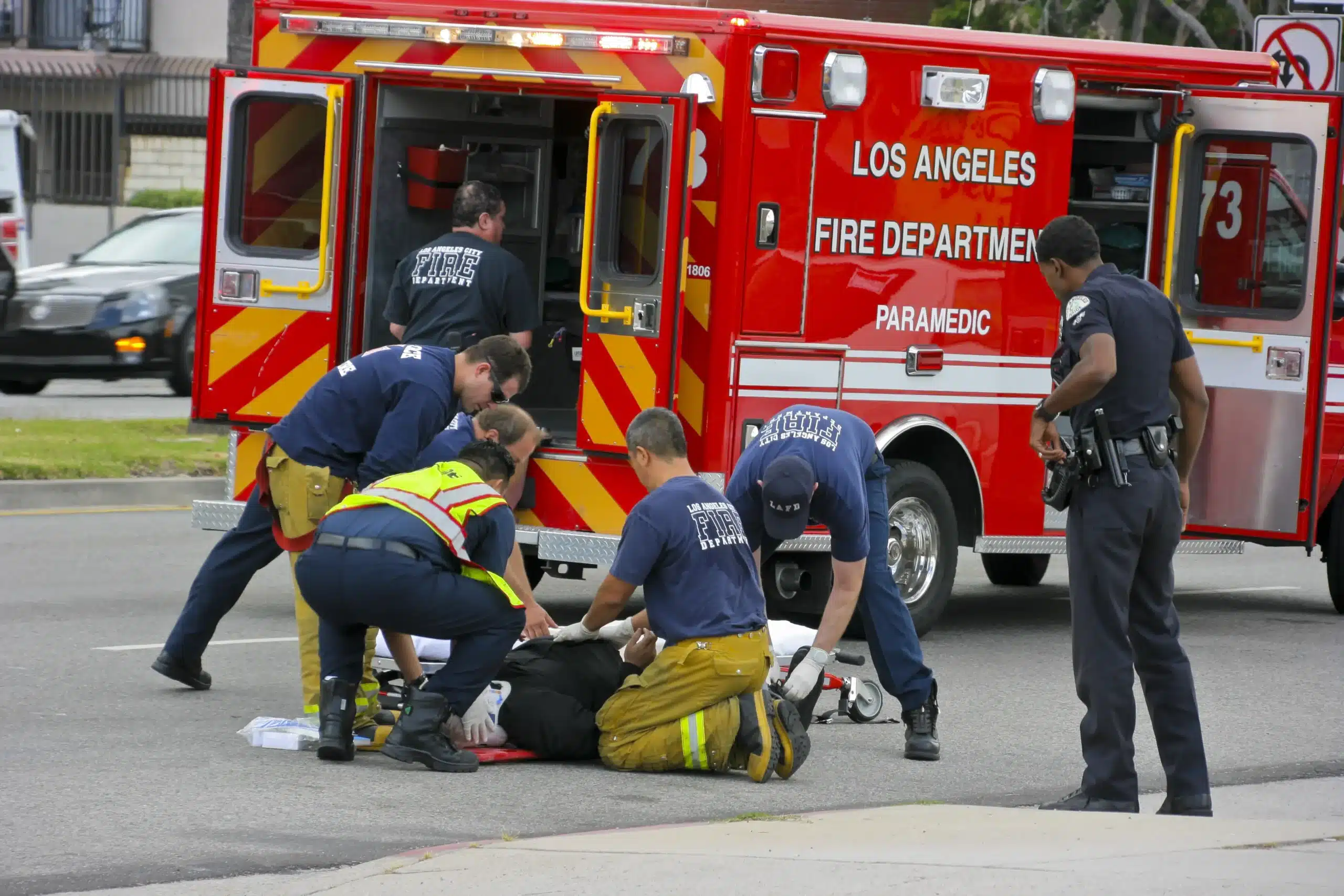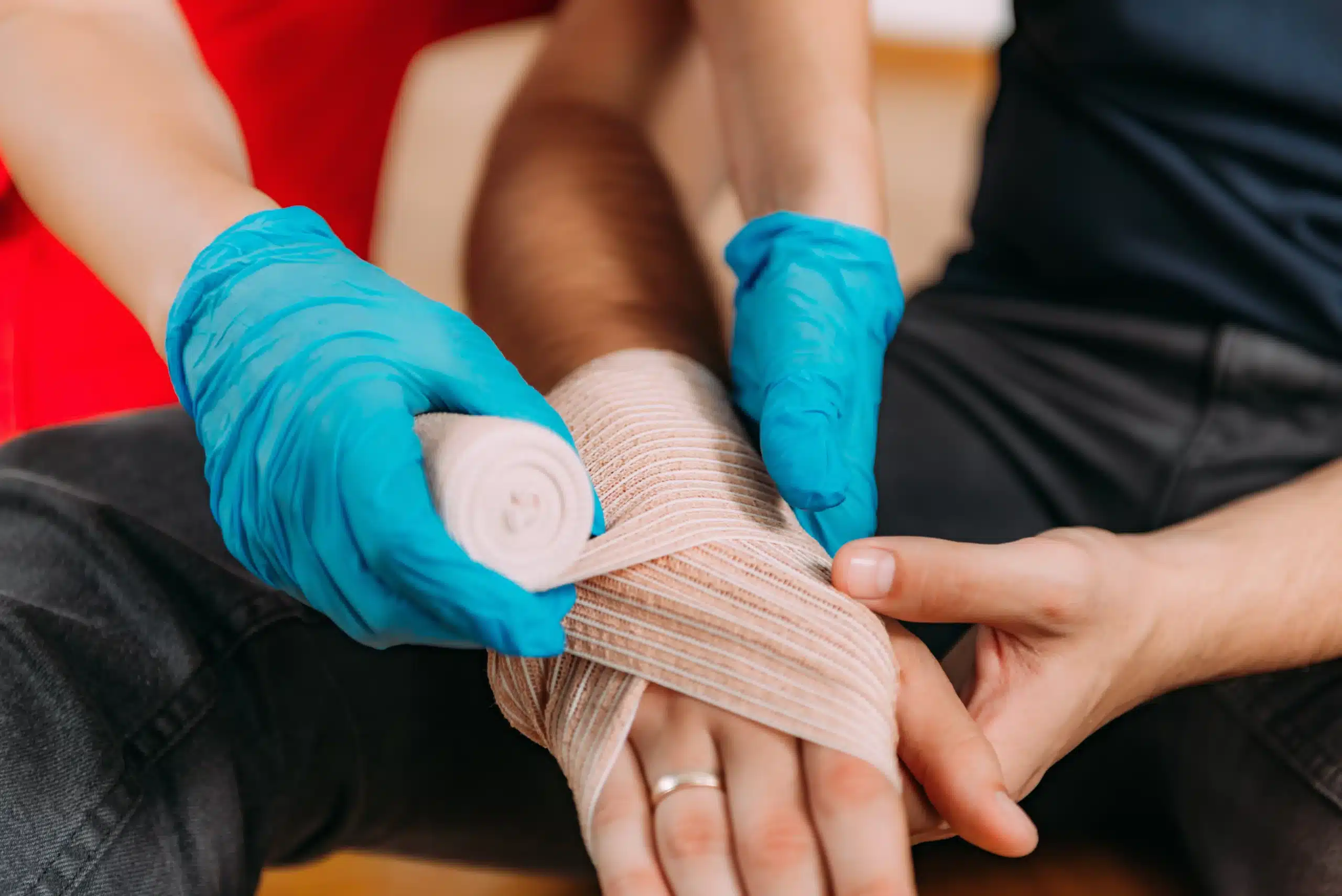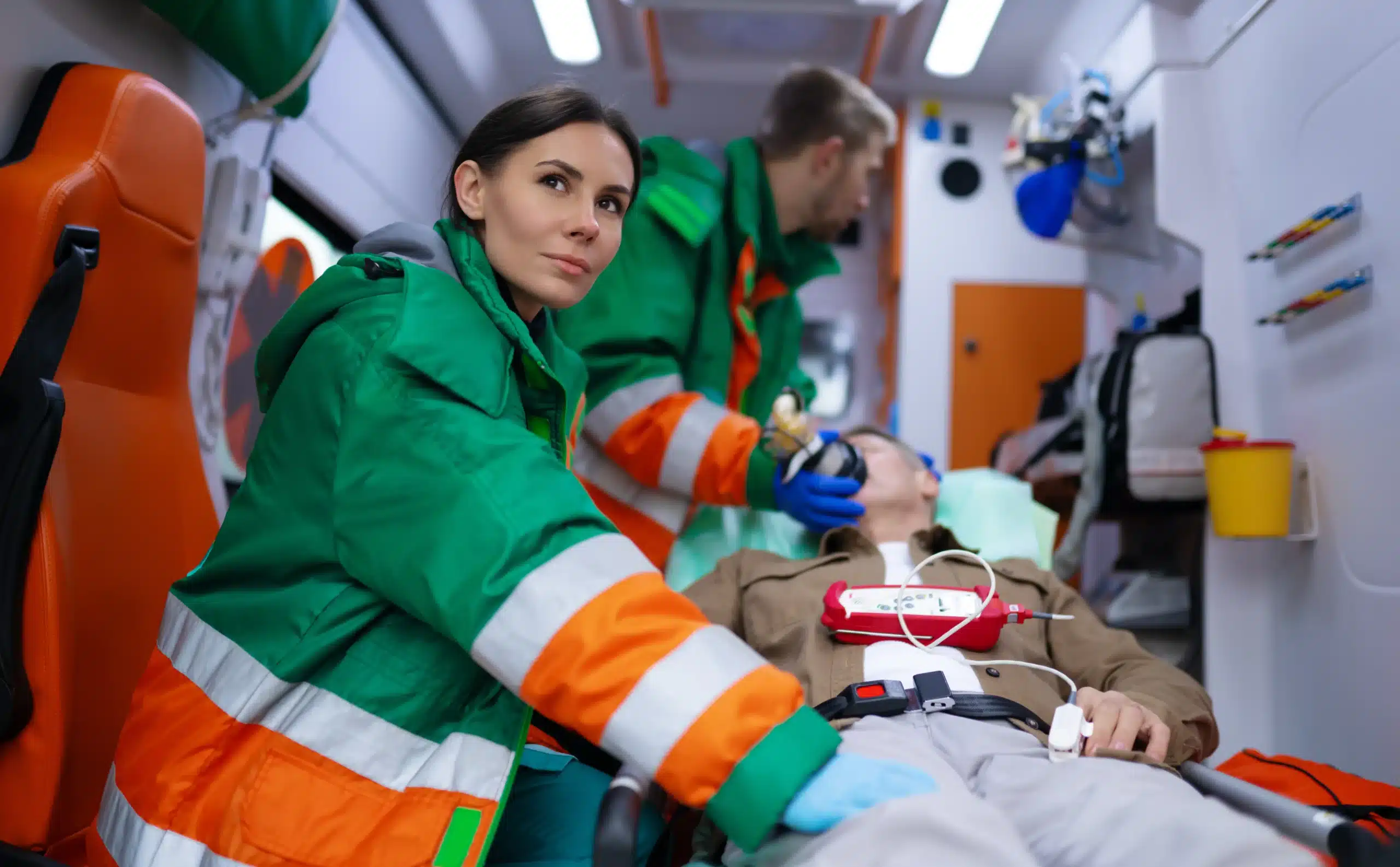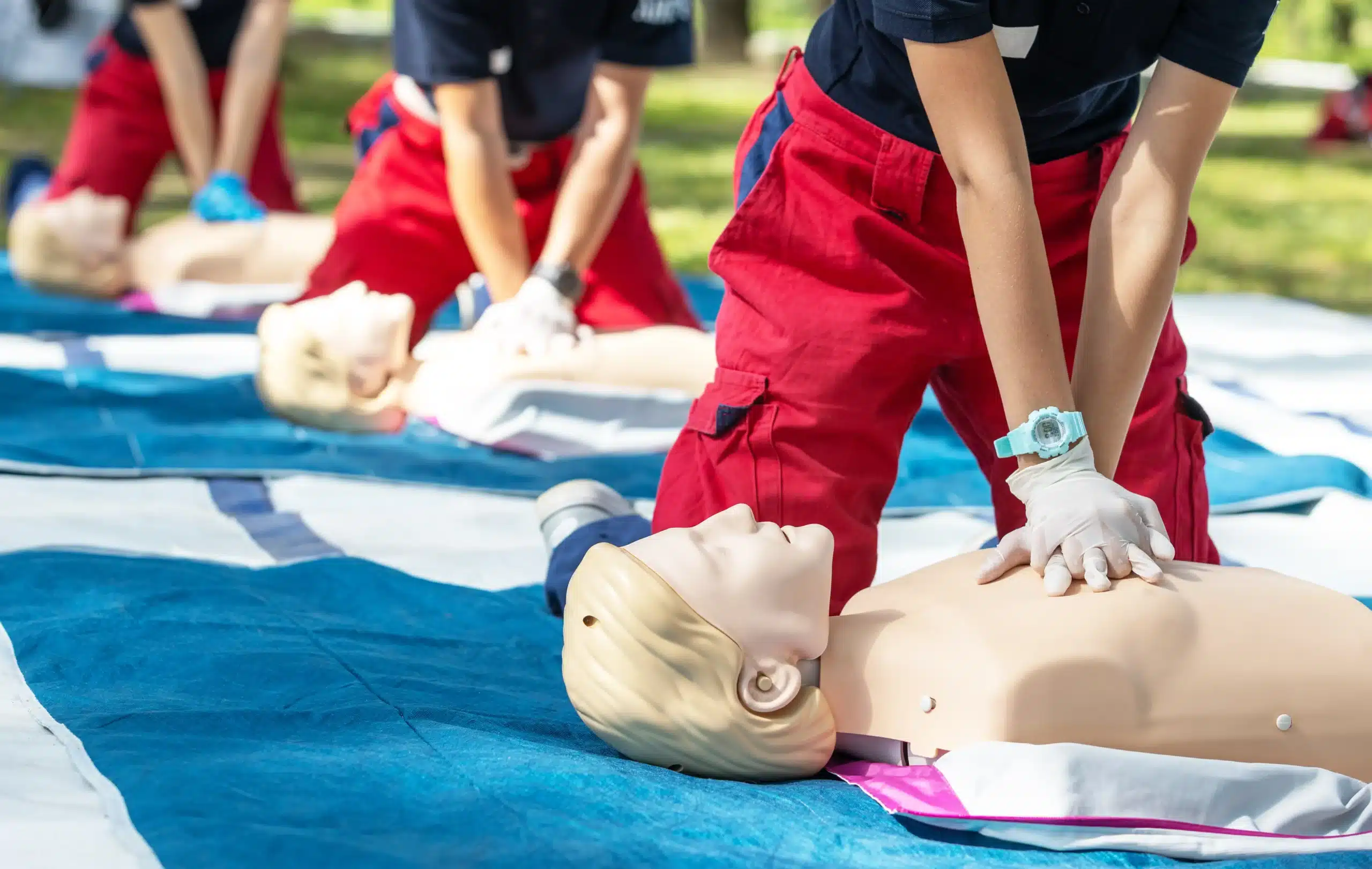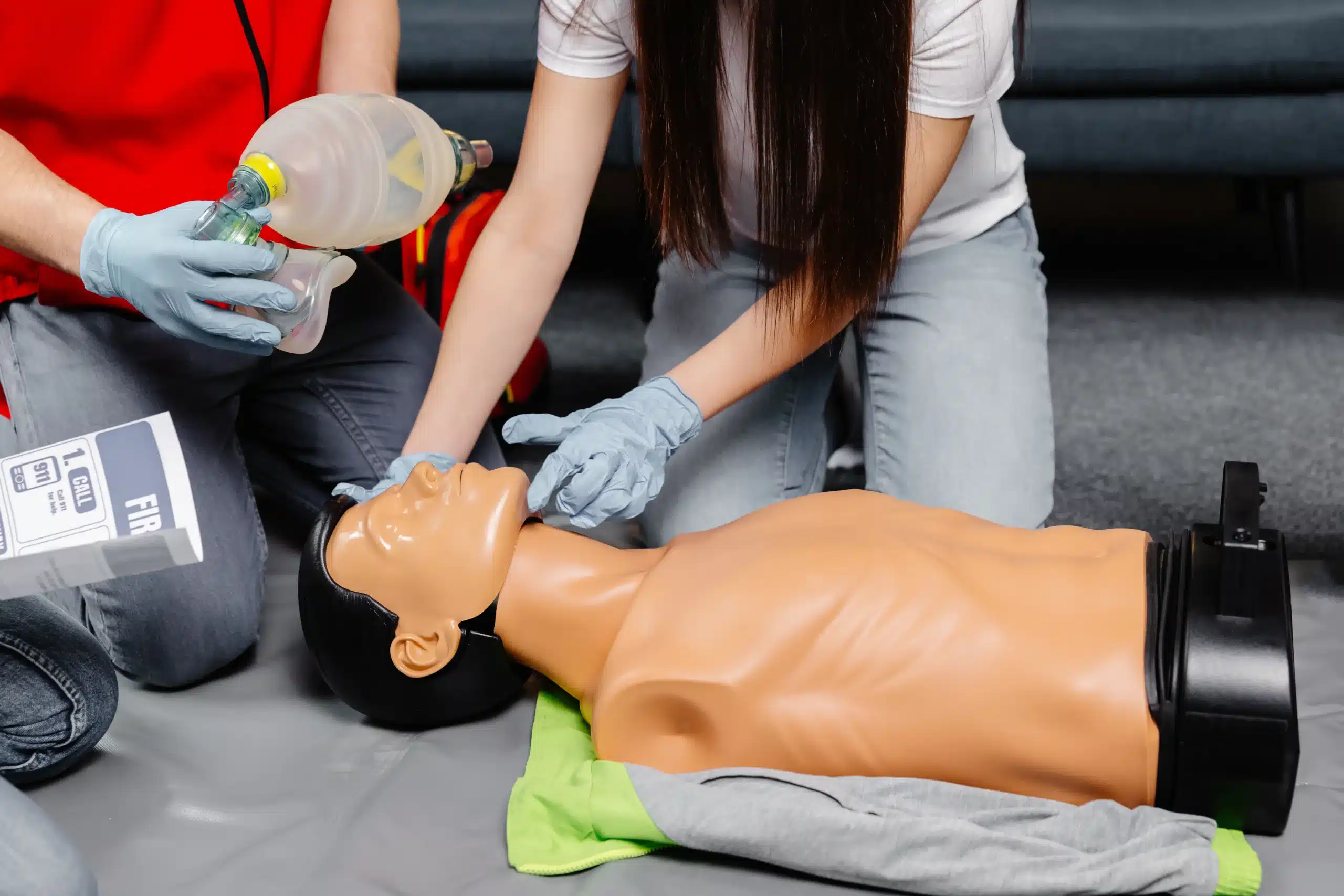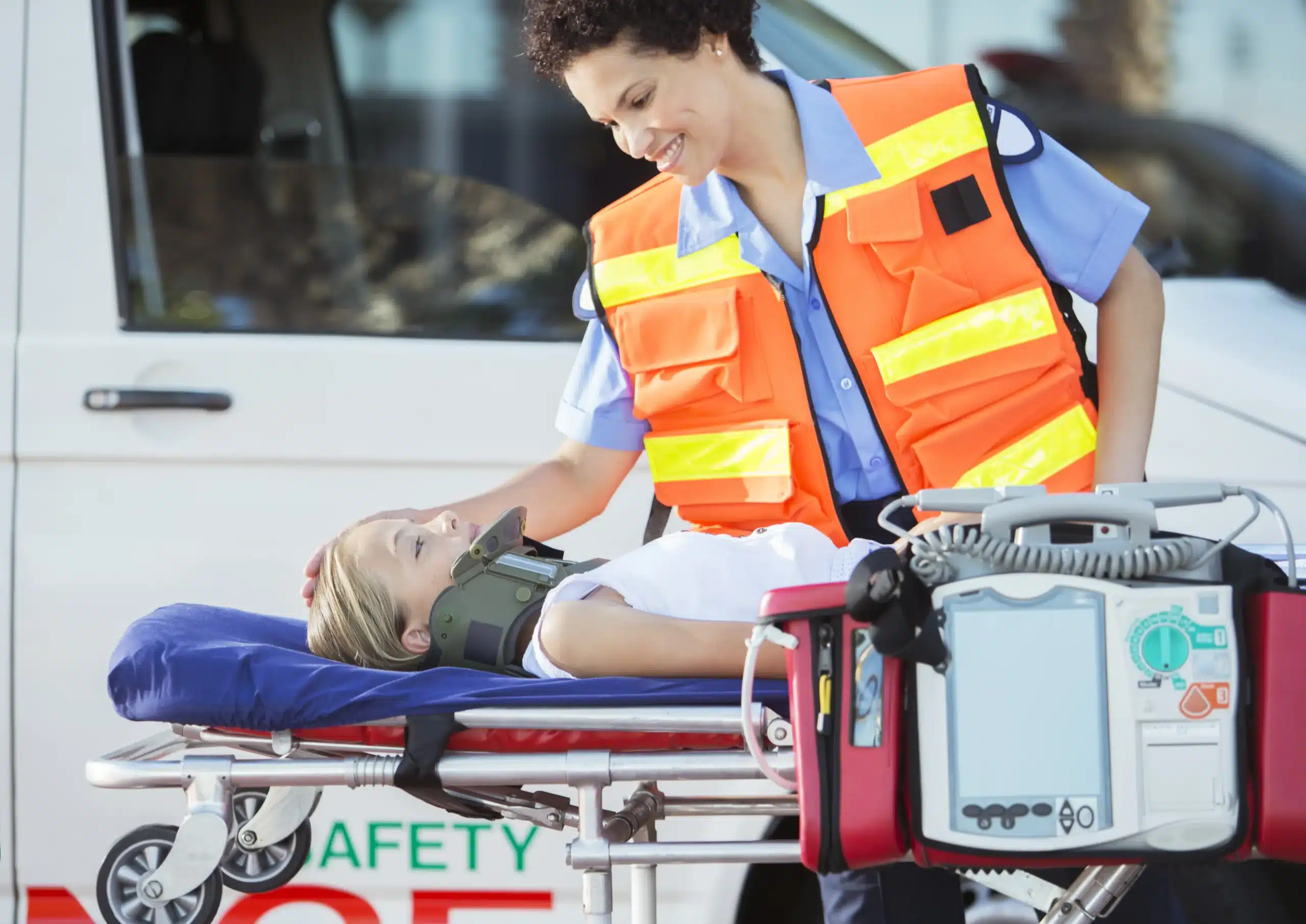CPR certification is more than just a credential; it’s a life skill that can make a profound difference. This guide demystifies the process, offering practical insights and resources to help you get certified. We’ll cover the various types of CPR courses, discuss average costs and potential discounts, and provide guidance on choosing a reputable training provider. Whether your search for “CPR certification near me” is driven by personal interest, career requirements, or a desire to serve your community, we’ll help you find the right course and understand the importance of staying up-to-date with your skills.
Key Takeaways
- CPR certification empowers you to act in emergencies: From personal peace of mind to career advancement and community impact, having CPR training provides valuable skills and the confidence to assist in critical situations. Explore different learning formats to find the best fit for your needs.
- Select a reputable CPR training provider: Accreditation, instructor experience, and comprehensive course content are key factors to consider. Think about your budget, schedule, and learning preferences when choosing a provider.
- Stay current with your CPR skills: Regular practice and refresher courses are essential for maintaining proficiency. Keep up with the latest CPR guidelines to ensure you’re always prepared to deliver effective assistance.
What is CPR Certification?
CPR certification shows you’ve completed a course and have the skills to perform cardiopulmonary resuscitation. It means you’re prepared to help in medical emergencies where someone’s breathing or heartbeat has stopped. Organizations like the American Heart Association (AHA) and the American Red Cross typically provide these certifications. Getting certified involves learning CPR techniques and passing a skills test to show you can use them correctly.
In-Person CPR Classes
Traditional in-person CPR classes offer hands-on learning. They provide a structured environment with an instructor guiding you through CPR, including chest compressions, rescue breaths, and how to use an AED. In-person training allows for immediate feedback from certified instructors and the chance to practice your skills in a realistic setting. This direct interaction can be especially helpful for those who prefer hands-on learning and direct instruction.
Online CPR Courses
Online CPR courses offer flexibility. They let you learn at your own pace and fit the training into your schedule. Many online courses use videos and interactive simulations to teach CPR techniques. While convenient, online-only CPR certification may not meet all workplace requirements. A blended learning approach is often recommended.
Blended CPR Learning
Blended learning combines online learning with in-person instruction. You typically complete the course theory online, then attend a shorter in-person session to practice and demonstrate your skills. This approach offers the best of both worlds—learn at your own pace and still receive hands-on training and feedback from a certified instructor. Fresno CPR Classes offers this blended learning model.
How Much Does CPR Certification Cost?
CPR certification is an investment in life-saving skills, and understanding the costs involved is an important first step. Let’s break down the typical expenses.
Average CPR Course Costs
CPR class prices typically range from $40 to $100. Several factors influence the final cost, including the type of certification you need (like BLS certification), the course format (in-person, online, or blended), and the training center. Fresno CPR Classes offers a low price guarantee, ensuring you receive high-quality training at a competitive rate.
CPR Group Discounts & Deals
If you’re training with a group, look for discounts. Many CPR training providers, including Fresno CPR Classes, offer reduced rates for group bookings. This can be a smart way to lower the individual cost while learning with others. Contact us to discuss options for your group.
Hidden CPR Certification Fees
While most CPR courses advertise a base price, be sure to ask about any potential extra fees. Some training centers might charge extra for study materials, certification cards, or online access. At Fresno CPR Classes, we aim for transparent pricing. Our advertised price generally covers everything you need to complete the course and receive your two-year certification. Still, it’s always wise to double-check when you register.
How Long Does CPR Certification Last?
It’s important to know how long your CPR certification is valid. This ensures you’re always ready to help in an emergency and that you meet requirements for your job or volunteer work. Let’s take a look at how long certifications last and what you should know about renewals.
CPR Certification Validity
CPR certifications are typically valid for two years. This standard timeframe reflects the importance of staying up-to-date on CPR techniques and guidelines. After two years, a refresher course is recommended to ensure your skills and knowledge align with the latest best practices. Medical knowledge evolves, and renewing your CPR certification ensures you’re providing the best possible care in emergencies. Check your certification card for the exact expiration date so you know when it’s time to renew.
Renewing Your CPR Certification
You’ll need to take a renewal course before your current certification expires. The renewal process is simple and designed to refresh your skills and update you on any changes in CPR procedures. Fresno CPR Classes offers the training you need to stay current. Many CPR training providers offer flexible options, including blended learning that combines online coursework with in-person skills sessions. This flexibility makes it easier to fit the training into your schedule. Contact your certifying organization or training provider to find out what renewal options are available and get your questions answered.
Why Get CPR Certified?
CPR certification empowers you to make a real difference in critical situations. It’s about more than just acquiring a skill; it’s about gaining the confidence to act when every second counts. Whether for personal growth, career advancement, or community contribution, there are numerous compelling reasons to become CPR certified.
Personal Benefits of CPR Training
Learning CPR provides a sense of preparedness and security, knowing you can assist loved ones or strangers during medical emergencies. Imagine a scenario where a family member or friend experiences sudden cardiac arrest. Your CPR training could be the deciding factor in their survival. It equips you with the skills to recognize cardiac arrest, perform chest compressions, and potentially use an AED. These actions can significantly improve the chances of a positive outcome while waiting for professional medical help to arrive. For a comprehensive guide to CPR classes in Fresno, check out this helpful resource. CPR training transforms you from a bystander into a potential lifesaver, offering invaluable peace of mind.
Career Benefits of CPR Training
In many professions, CPR certification is a prerequisite. Fields like healthcare, education, and childcare often require professionals to hold a current CPR certification. Obtaining an AHA BLS Certification is a great option. Having this credential on your resume not only makes you a more competitive candidate but also demonstrates your commitment to safety and preparedness in the workplace. It signals to potential employers that you’re equipped to handle emergencies and prioritize the well-being of those around you. Even if not strictly required, CPR certification can enhance your career prospects and open doors to new opportunities. Learn more about CPR certification in Fresno with this informative guide.
Community Impact of CPR
Becoming CPR certified extends beyond personal and professional benefits; it contributes to a safer community for everyone. CPR-trained individuals create a network of first responders within their communities, ready to assist in emergencies. CPR courses provide a blend of theoretical knowledge and practical skills, empowering individuals to act confidently and potentially increase survival rates in cardiac arrest situations. By getting CPR certified, you become a valuable asset, capable of providing immediate assistance until professional help arrives. You’re not just learning a skill; you’re becoming an active participant in building a more resilient and prepared community.
How to Choose a CPR Provider
Finding the right CPR class can feel overwhelming, but focusing on a few key factors makes the process much easier. Here’s what to look for when choosing a CPR provider:
Accreditation & Credibility
First, confirm the provider is accredited by a nationally recognized organization like the American Heart Association (AHA). AHA-certified training ensures you’re learning up-to-date techniques and receiving a certification recognized by healthcare providers and employers. This accreditation validates the quality of the training and ensures your certification is valuable. Fresno CPR Classes offers AHA-certified training, giving you confidence in the skills you’ll develop.
Instructor Qualifications
Look for experienced, certified instructors. The quality of your training depends heavily on the instructor’s ability to teach effectively. CPR certificates from the AHA are considered the gold standard, so choosing a provider with AHA-certified instructors is a smart move. Experienced instructors can answer your questions thoroughly and provide helpful guidance.
Course Content & Materials
Check the course content to make sure it aligns with your needs. Do you need basic CPR training, or are you a healthcare professional requiring advanced certification like ACLS or PALS? Fresno CPR Classes offers a range of AHA certification courses, including BLS, ACLS, PALS, and First Aid, ensuring you can find the right fit. Also, inquire about the materials provided – make sure they are comprehensive and easy to understand.
Flexibility & Convenience
Finally, consider logistics. CPR training providers in Fresno offer flexible scheduling, including weekday and weekend classes, evening options, and intensive one-day courses. Choose a location and schedule that works for you. Group discounts are often available, which can be a great option for families or workplaces. If cost is a concern, check if the provider offers a low-price guarantee like Fresno CPR Classes. Finding a convenient and affordable option helps you prioritize this important training. Contact Fresno CPR Classes to discuss scheduling and pricing.
What Happens During CPR Training?
Getting CPR certified is more straightforward than you might think. Here’s what you can expect during a typical CPR training course:
CPR Course Structure
CPR training blends classroom learning with hands-on practice. You’ll begin with basic life support principles, learning how to recognize the signs of a heart attack and activate the emergency response system. Your instructor will guide you through the steps of CPR—chest compressions, rescue breaths, and how to use an automated external defibrillator (AED). Fresno CPR Classes offers various certifications, including BLS, ACLS, and PALS, with a low price guarantee. They also offer convenient group discounts and daily classes in over 60 cities, making it easy to find a class that fits your schedule.
Hands-On CPR Practice
After the classroom instruction, you’ll move into hands-on training, practicing the techniques you learned on mannequins. This helps you develop the muscle memory and confidence to perform CPR effectively in a real emergency. This hands-on practice is crucial for mastering the correct depth and rate of compressions, hand placement, and body positioning. Many CPR training providers, like Fresno CPR Classes, offer flexible scheduling, including weekday and weekend classes, and intensive one-day courses.
CPR Assessment & Certification
After the hands-on training, you’ll be assessed on your skills, typically demonstrating your CPR technique on a mannequin while the instructor observes. Successful completion earns you your CPR certification. You’ll receive your American Heart Association (AHA) BLS CPR card the same day as your class, valid for two years. Fresno CPR Classes also offers RQI classes for those interested in maintaining their skills. Reach out through their website if you have questions or want to schedule a class.
Where to Get CPR Certified in Fresno
Finding the right CPR certification course can feel overwhelming, but plenty of reputable organizations and training centers offer classes in Fresno. Here’s a rundown of where you can get certified:
Fresno CPR Classes
Fresno CPR Classes offers a range of American Heart Association certifications, including BLS, ACLS, and PALS. With classes offered daily in over 60 cities, they make finding a convenient time and location easy. They also offer a low price guarantee and discounts for groups, making their courses accessible. Fresno CPR Classes also provides additional services like EMSA Child Care Health & Safety training and RQI classes. Contact them to learn more about their offerings.
American Red Cross
The American Red Cross is a well-known provider of CPR and first aid training. Their Fresno courses cover essential skills, from recognizing cardiac arrest to performing chest compressions and using an AED. Check their website for class schedules and locations near you. While this blog post focuses on Fresno CPR Classes, the Red Cross is another reputable option.
American Heart Association
While you can find AHA-certified courses through various providers, including Fresno CPR Classes, checking the American Heart Association website can be helpful. They often list certified training centers in your area. This can be a good way to compare course offerings and find one that fits your schedule and budget. CPR class prices typically range from $40 to $100, depending on the certification level and course format.
Local Hospitals & Community Centers
Local hospitals and community centers frequently offer CPR classes. These classes are often convenient for those living nearby and can be a more affordable option. Check with hospitals and community centers in your area for upcoming CPR training schedules. Many providers offer flexible scheduling, including weekday and weekend classes, as well as evening and intensive one-day courses.
Prepare for Your CPR Class
Getting ready for your CPR class involves more than just signing up. A little preparation beforehand can make a big difference in how much you get out of the training. Here’s what you should know:
What to Bring to CPR Class
Most CPR classes are designed to be straightforward. Bring a pen and notepad to jot down important reminders or key takeaways. You’ll also want your driver’s license or other identification, along with any registration information the training center requires. Some classes may also suggest a water bottle and light snacks, especially for longer sessions. It’s always a good idea to double-check with Fresno CPR Classes about any specific items they recommend. You can find their contact information on their contact us page.
CPR Pre-Course Study Materials
Want to get a head start? See if your CPR training provider offers any pre-course materials. Reviewing these beforehand can boost your confidence and make the hands-on training even more effective. Many providers, including Fresno CPR Classes, offer blended learning, combining online coursework with in-person skills sessions. This approach can deepen your understanding of CPR and give you a solid foundation before you even set foot in the classroom. Check out their blended learning CPR courses to see if this option is right for you. For those looking to brush up on their skills, Fresno CPR Classes also offers RQI classes.
Mental Preparation for CPR Training
CPR training is about more than just the physical steps; it’s also about mental preparedness. Take a moment to familiarize yourself with the course structure and the skills you’ll be learning. Recognizing the life-saving potential of CPR can help you approach the training with the focus it deserves. Knowing that CPR courses often blend theory with practical application can also ease any anxiety you might have about the hands-on portions. Remember, the goal is to equip you with the skills and confidence to handle real-life emergencies. Fresno CPR Classes also offers discounts for group CPR training.
Maintain Your CPR Skills
Once you’re CPR certified, commit to keeping your skills fresh. Regularly refreshing your knowledge and practical skills can significantly impact your confidence and effectiveness during a real emergency.
CPR Refresher Courses
CPR guidelines and best practices can change, so refresher courses are essential. Don’t let your certification lapse. Fresno CPR Classes offers a variety of CPR certifications, including BLS, ACLS, and PALS, making it easy to find the right refresher course for your needs. With daily classes in over 60 cities and a low price guarantee, staying current on your CPR training is both convenient and affordable.
CPR Practice Opportunities
Hands-on practice is key to maintaining muscle memory and confidence in your CPR skills. Look for opportunities to practice beyond your certification course. Fresno CPR Classes blends theory and practical skills in its courses, providing a solid foundation for real-life scenarios. Consider joining a CPR club or finding a study buddy to practice with. Even practicing on a CPR manikin at home can help solidify your skills.
Stay Updated on CPR Guidelines
Emergency protocols and CPR guidelines are occasionally updated. Staying informed about these changes is crucial for providing the most effective care. Subscribe to reputable medical journals, follow organizations like the American Heart Association, and consider taking an RQI class to stay at the forefront of CPR best practices. This proactive approach ensures you’re always prepared to respond confidently and effectively in an emergency. Contact us if you have questions about CPR guidelines or certifications.
Related Articles
- CPR Classes in Madera: Find Training Near You – Fresno CPR Classes
- Why CPR Matters in Healthcare (And How to Get Certified)
- CPR & First-Aid Training in Fresno: A Complete Guide – Fresno CPR Classes
Frequently Asked Questions
What’s the difference between CPR and First Aid?
CPR focuses specifically on life-threatening situations where someone’s breathing or heartbeat has stopped. It involves chest compressions and rescue breaths to circulate oxygenated blood. First Aid covers a broader range of medical emergencies, from minor cuts and burns to more serious injuries like fractures and allergic reactions. While distinct, they often complement each other, and many training courses cover both.
How do I know if a CPR course is right for me?
Consider your personal and professional needs. If you work in healthcare, childcare, or a related field, CPR certification is likely mandatory. Even if it’s not required, learning CPR is a valuable life skill. Think about your comfort level with medical situations and your willingness to assist in an emergency. If you’re unsure, contact a CPR training provider like Fresno CPR Classes to discuss your options.
What if I’m nervous about the in-person skills assessment?
It’s completely normal to feel a little apprehensive about the practical exam. Remember, CPR instructors create a supportive learning environment. The goal isn’t to make you feel stressed but to help you build confidence. Practice beforehand, ask questions, and communicate any concerns to your instructor. They’re there to guide you and ensure you feel prepared.
Is online-only CPR certification enough?
While online CPR courses offer flexibility, they may not meet all requirements, especially for healthcare professionals or workplace settings. Blended learning, which combines online coursework with in-person skills practice, is often the preferred approach. It allows you to learn at your own pace while still receiving hands-on training and feedback from a certified instructor.
How can I fit CPR training into my busy schedule?
Many CPR training providers understand the demands of a busy schedule. They offer various class times, including evenings, weekends, and intensive one-day courses. Blended learning options can also provide more flexibility, allowing you to complete the online portion at your convenience and then schedule a shorter in-person skills session. Contact Fresno CPR Classes to discuss scheduling options that work for you.
